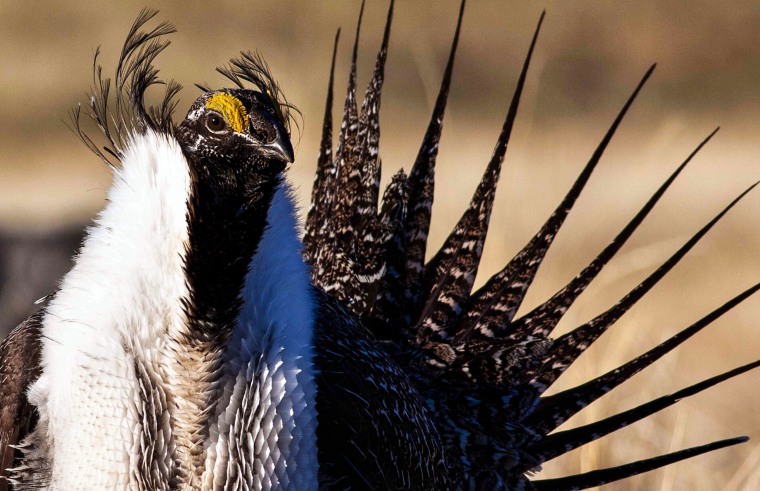The greater sage grouse, a ground-dwelling bird whose vast range spans 11 Western states, does not need federal protections, the Interior Department said Tuesday, following a costly effort to reverse the species' decline without reshaping the region's economy.
The fight over whether to list the bird as endangered or threatened recalled the battle over the spotted owl 25 years ago, in which federal protection greatly impeded the logging economy. The Obama administration and affected states have committed hundreds of millions of dollars to saving the grouse without Endangered Species Act protections that many argued would threaten the oil and gas industry and agriculture.
Tuesday's announcement signaled that the Obama administration believes it has struck a delicate balance to save the birds from extinction without crippling the West's economy. It also could help defuse a potential political liability for Democrats heading into the 2016 election — federal protections could have brought much more sweeping restrictions on oil and gas drilling, grazing and other human activities from California to the Dakotas.
RELATED: The $5.6 Billion Bird: How Will The Sage Grouse Fight End?

The government was providing some level of habitat protections on 67 million acres of federal lands, including 12 million acres where strict limits on oil and gas limits will be enforced, an aide to Interior Secretary Sally Jewell said. That's more than a third of the animal's total range and does not include millions of acres of private land shielded by conservation easements.
"It's the most complex, the largest land conservation effort in U.S. history," Jewell adviser Sarah Greenberger said. "This model of science-based, landscape-level conservation is truly the future of conservation."
Jewell and the governors of Wyoming, Montana, Colorado and Nevada were to make a formal announcement later in the day at the Rocky Mountain Arsenal National Wildlife Refuge just north of Denver.